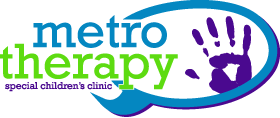Fall 2020 Newsletter
Building Language Skills at Home
As schools begin with hybrid and distance learning models again this fall, kids and families are continuing to spend much of their time at home. Luckily many routine at-home activities can boost language skills.
Cooking, cleaning, and other household tasks
Get kids involved in preparing a recipe, washing the dishes, doing the laundry, and putting away toys. These tasks are ideal for following directions, understanding prepositions (in, under, next to), building vocabulary for nouns (measuring cup, detergent) and verbs (mix, sort, wipe). You can have kids make inferences and predictions (What would happen if we didn’t put the ice cream away in the freezer? What will we do after the dryer dings?) After a task is completed, ask your child to retell what you did.
Reading
Independent and shared reading is always a beneficial language activity. Take it a step further by asking questions about the story. These can be concrete questions about the characters or actions. You can also ask questions like, “What you do if you were in this story?” or “How do you think she’s feeling?” or “What might happen next?”
TV and video games
These activities can also be language-based and interactive. Ask your child to explain what he is building in Minecraft or what he likes best about his favorite game. Watch a show or movie together and pause occasionally to ask and answer questions and make predictions. Afterward, try to retell the plot together.
Phone or video calls
Connect with family and friends you can’t see in person using phone calls or video chats. Children may benefit from brainstorming possible conversation topics before the call. Review what they’ve been up to and questions they can ask the other person.
Routine
Structure is so important. Some kids rely on the structure of school day to stay grounded. They should have the same routine and prepare for the day the same time whether it is an at home learning day or a in person learning day. When at home set up a special space at home where learning will take place (be mindful of distractions-clutter, noise, etc). It should be a specific space & have all their supplies with them.
Breaks
Let them have mental and movement breaks! They should be engaging in some sort of physical activity throughout the school day- try and get outside between lessons, meetings and subjects.
Review mask guidelines with and for your kids
Mask wearing will be a part of the school day for many kids. Some may be fine with it while others may need more practice. Start having them wear it more often to ease into it. Additionally, your child may be exempt from wearing a mask, check with your child’s school policies and the MDE and MDH regulations.
At home sensory space/sensory tools
Create a space with sensory tools that resemble the supports the students received when they were in school. This can help with the transition and provide them a space for a break when needed to help decrease meltdowns before they start.
https://www.edutopia.org/article/diy-ways-meet-childs-sensory-needs-home
https://www.boston.com/culture/education/2020/08/25/how-to-help-your-child-succeed-hybrid-learning-model
Clinic Closure for Holidays
Metro Therapy will be closed September 7th in observance of Labor Day.
Metro Therapy will be closed Nov 26th and 27th for Thanksgiving.
If your child has sessions to make up, consider completing those during MEA break Oct 15 to 16, Metro Therapy will remain open!
Metro Therapy Team Anniversaries:
Sarah Hetz is celebrating 9 years.
Veronica Clark is celebrating 8 years.
Jessica Paredes is celebrating 7 years.
Kelsey Olson is celebrating 6 years.
Brittany Ahlskog is celebrating 6 years.
Katy Fischer is celebrating 5 years.
Becka Haensel is celebrating 5 years.
Monica Wielinski is celebrating 4 years.
Lindsey Brown is celebrating 3 years.
Erin Braaten is celebrating 1 year.
Continuing Education
Sarah Hetz completed the following courses: Working with Children with Social and Emotional Issues; Early, Persistent, and Remediated Speech Sound Disorders; A Language-Based Approach to Managing Echolalia; and Scanning 101 and 102 from Tobii Dynavox
